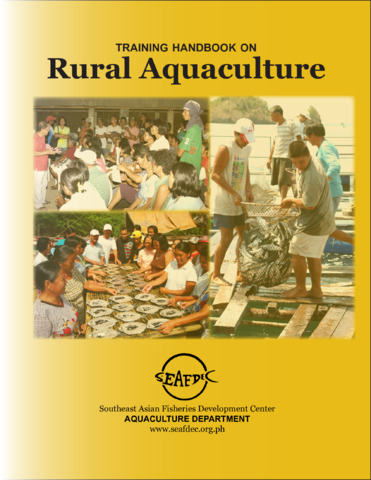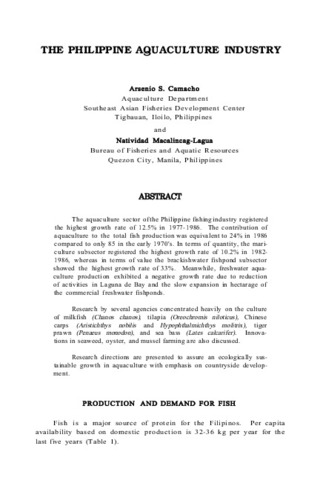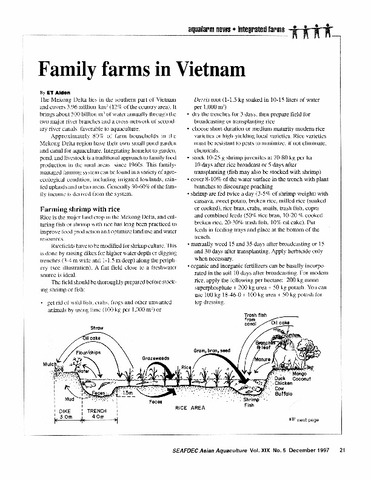Training handbook on rural aquaculture
- Global styles
- MLA
- Vancouver
- Elsevier - Harvard
- APA
- Help
Share
Abstract
This handbook covers four important factors in undertaking sustainable aquaculture livelihood namely: (1) aquatic resources and environment; (2) socioeconomic attributes of fishing communities; (3) appropriate and economically feasible aquaculture technologies; and, (4) policy issues and institutional arrangements related to a balanced fishery management and aquaculture livelihood. The long-term outcomes of these strategies shall be measured in terms of environmental sustainability, economic uplift of the community, and equitable distribution of benefits among different sectors of the community.
Description
3rd advance reading copy.
Suggested Citation
SEAFDEC/AQD. (2009). Training handbook on rural aquaculture. Tigbauan, Iloilo, Philippines: Aquaculture Department, Southeast Asian Fisheries Development Center.
Type
BookISBN
9789718511893Format
[vii], 296 p. : ill.
Collections
Related items
Showing items related by title, author, creator and subject.
-
The Philippine aquaculture industry
Camacho, Arsenio S.; Macalincag-Lagua, Natividad (Aquaculture Department, Southeast Asian Fisheries Development Center, 1988)The aquaculture sector of the Philippine fishing industry registered the highest growth rate of 12.5% in 1977-1986. The contribution of aquaculture to the total fish production was equivalent to 24% in 1986 compared to ... -
Family farms in Vietnam
Aldon, Eva T. (Aquaculture Department, Southeast Asian Fisheries Development Center, 1997) -
Nursery and grow-out operation and management of Penaeus monodon (Fabricius)
Corre, Kaylin G. (Aquaculture Department, Southeast Asian Fisheries Development Center, 1988)The results of research on nursery and grow-out rearing of prawn conducted by the SEAFDEC Aquaculture Department for over a decade are reviewed. Different rearing facilities designed to accommodate hatchery-produced prawn ...





